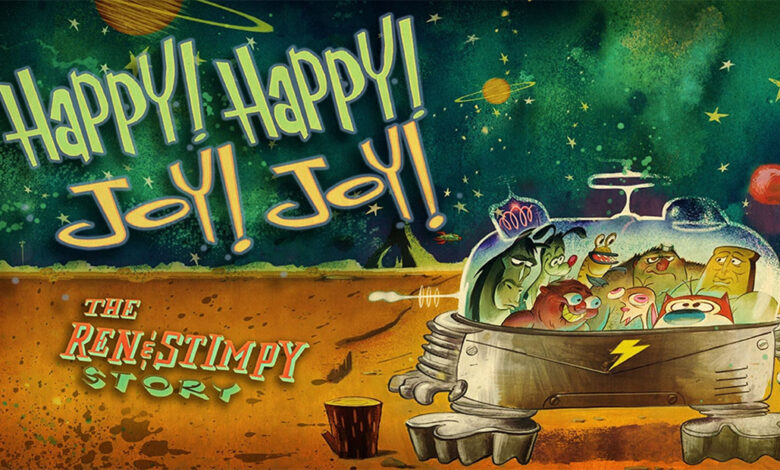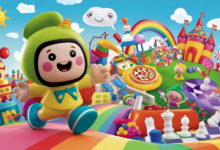Happy Happy Joy Joy: The Power of Positivity

Happy Happy Joy Joy When was the last time you felt true happiness? Not the fleeting joy of a good joke or the brief excitement of unwrapping a gift, but that deep, lasting feeling of contentment that lights up your entire day. If you’re searching for that kind of happiness, look no further—it’s all about finding your own “happy happy joy joy.”
This article will dive into the essence of happiness and joy, how they differ, and why they’re essential in leading a fulfilling life. We’ll explore how to cultivate positive emotions, surround ourselves with uplifting people, and develop habits that bring lasting happiness.
What Does “Happy Happy Joy Joy” Really Mean?
“Happy happy joy joy” is more than just a catchy phrase—it represents a state of complete emotional well-being. Happiness and joy may seem like the same thing, but they’re quite different in many ways. To understand the power of this phrase, let’s break it down:
- Happiness is typically connected to external circumstances. It could be a good grade on a test, winning a game, or getting a gift. Happiness can come and go, based on what’s happening in your life.
- Joy, on the other hand, is more internal. It’s a deeper, long-lasting feeling that isn’t as easily influenced by outside events. Joy comes from a sense of peace, purpose, and connection to others or something bigger than yourself.
When we talk about “happy happy joy joy,” we’re talking about finding that balance between everyday happiness and the deeper, more meaningful feeling of joy.
The Science of Happiness and Joy
Scientists have been studying happiness for years, and it turns out that it’s not just something that happens to us—we can create it ourselves. Let’s take a look at the science behind [happy happy joy joy]:
- Endorphins and Serotonin: These are chemicals that your brain releases when you’re feeling happy. They’re often called the “feel-good” chemicals. When you laugh or exercise, endorphins get released, giving you that immediate rush of happiness. Serotonin, meanwhile, is connected to long-term happiness and mental well-being.
- Gratitude: Research has shown that people who regularly practice gratitude are generally happier. This means taking time each day to focus on what you’re thankful for can make a big difference.
- Positive Thinking: People who focus on the positive rather than the negative tend to be happier. Studies show that a positive outlook can reduce stress, boost health, and improve relationships.
While happiness is influenced by biology, it’s also something we can work on every day. The journey to [happy happy joy joy] isn’t just a destination—it’s a process.
Why Is It Important to Pursue “Happy Happy Joy Joy”?
You might wonder, why does it matter if we feel happy and joyful? After all, life can be full of challenges, and isn’t it natural to feel down sometimes? The truth is, the pursuit of happiness and joy can have major impacts on your life:
- Mental Health: Positive emotions help reduce anxiety, stress, and depression. When you experience more joy, you’re better equipped to handle tough situations.
- Physical Health: Believe it or not, happier people tend to live longer. They also experience fewer illnesses and bounce back quicker when they do get sick.
- Better Relationships: Joyful people are more attractive to others. Their positivity draws people in and strengthens their social connections.
- Increased Success: Happy people are generally more successful at work and school. Their positive attitude helps them overcome challenges, think more creatively, and take more risks.
Clearly, seeking [happy happy joy joy] can benefit nearly every aspect of your life.
Ways to Cultivate Happiness in Everyday Life
It’s important to know that happiness doesn’t have to be rare. You can bring more [happy happy joy joy] into your life with small, everyday actions. Here are some practical ways to do it:
- Smile More: It might sound simple, but smiling—even when you don’t feel like it—can trick your brain into thinking you’re happy. Try smiling at people, even strangers, and see how it lifts your mood.
- Exercise Regularly: Physical activity releases endorphins, boosting your mood. Even just a 20-minute walk can help lift your spirits.
- Meditate: Meditation can help calm your mind and bring you more peace. It also helps you focus on the present moment, making it easier to feel joy.
- Spend Time with Loved Ones: Being around family and friends, especially those who make you feel good about yourself, can boost your happiness levels.
- Limit Social Media: Too much time scrolling can make you feel isolated or envious. Try reducing screen time and connecting with people in real life instead.
Incorporating these small habits into your routine can add up to big changes over time.
The Connection Between Joy and Gratitude
If you want to feel more joy, the quickest way to do so is by practicing gratitude. Feeling thankful for the things you already have—even the little things—can dramatically increase your joy.
Here are some tips to incorporate gratitude into your life:
- Keep a Gratitude Journal: Every day, write down three things you’re grateful for. They don’t have to be big—something as simple as a good meal or a kind word counts.
- Express Appreciation: Make it a habit to thank others. Tell someone you appreciate their help or their friendship. This not only makes them feel good but also reinforces your own feelings of joy.
- Practice Mindfulness: Being aware of your surroundings and noticing the small details can boost your appreciation for life. Take a moment to enjoy the sunrise or the smell of fresh rain.
Gratitude isn’t just about being polite—it’s about recognizing the good things already present in your life, which is a cornerstone of feeling [happy happy joy joy].
The Joy of Helping Others
Did you know that helping others can make you feel happier? It’s true! Acts of kindness not only benefit the people you’re helping but also give you a sense of purpose and satisfaction. This is known as the “helper’s high.”
- Volunteering: Giving your time to a cause that matters to you is a great way to feel joy. You’ll meet new people, make a difference, and boost your own sense of well-being.
- Random Acts of Kindness: You don’t have to volunteer to experience the joy of helping others. Small actions, like holding the door open for someone or complimenting a stranger, can bring happiness to both you and the other person.
By spreading positivity, you’re creating more happiness in the world—and bringing yourself closer to that state of [happy happy joy joy].
Can Money Buy Happiness?
You’ve probably heard the saying, “Money can’t buy happiness.” While that’s mostly true, money can play a role in happiness—if it’s spent wisely. Research shows that how we spend our money can affect our happiness levels:
- Experiences Over Things: Spending money on experiences (like travel or going out with friends) tends to bring more lasting happiness than buying material things.
- Giving to Others: Interestingly, spending money on others brings more joy than spending it on yourself. Whether it’s donating to a charity or buying a thoughtful gift, generosity makes us happier.
While money alone can’t bring joy, it can contribute to a happy, fulfilling life when used in the right ways.
Common Myths About Happiness
There are a lot of misconceptions about happiness. To truly understand [happy happy joy joy], it’s important to clear up some of these myths:
- Myth 1: Happiness Means Always Being Positive: Life has its ups and downs, and no one can be happy all the time. The key is learning how to bounce back from the tough moments.
- Myth 2: You Have to Be Successful to Be Happy: Success doesn’t guarantee happiness. In fact, many people find that true happiness comes from relationships, experiences, and purpose rather than achievements.
- Myth 3: You’re Either Born Happy or You’re Not: Happiness is a skill you can build. While some people may have a natural tendency to be more positive, everyone can learn to create more joy in their lives.
The Role of Relationships in Happiness
Your relationships—whether with friends, family, or a partner—have a big impact on your happiness. People who feel connected to others tend to experience more joy and less stress.
- Build Strong Friendships: Make time for the people who make you feel good. Friendships are like plants—they need care and attention to grow.
- Communicate Openly: Healthy relationships are based on good communication. Share your feelings and listen to others. This strengthens bonds and brings more joy into your life.
When you prioritize meaningful connections, you’re taking a big step toward feeling more [happy happy joy joy].
Wrapping Up: Embrace Your Own “Happy Happy Joy Joy”
The journey to happiness and joy is a personal one, but it’s worth every step. By practicing gratitude, helping others, building strong relationships, and taking care of your mental and physical health, you can experience more [happy happy joy joy] in your everyday life.
Remember, happiness isn’t something that happens to you—it’s something you create. With the right mindset and habits, you can cultivate a life full of joy, no matter what challenges come your way.
In the end, it’s all about finding your own version of “happy happy joy joy” and embracing the little moments that make life truly special.


